Resources
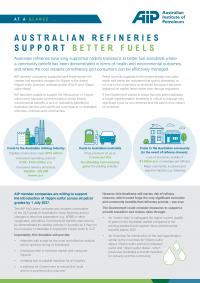
Date
Description
Australian refineries have long supported orderly transitions to better fuel standards where a community benefit has been demonstrated in terms of health and environmental outcomes, and where the cost impacts on refineries and consumers can be effectively managed.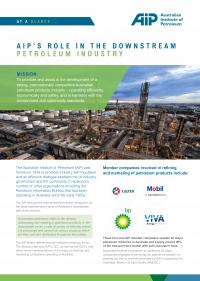
Date
Description
The Australian Institute of Petroleum (AIP) was formed in 1976 to promote industry self-regulation and an effective dialogue between the oil industry, government and the community. It replaced a number of other organisations including the Petroleum Information Bureau that had been operating in…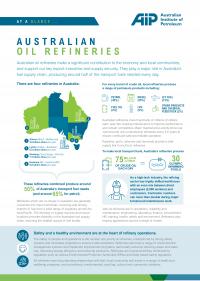
Date
Description
Australian oil refineries make a significant contribution to the economy and local communities, and support our key export industries and supply security. They play a major role in Australia’s fuel supply chain, producing around half of the transport fuels needed every day.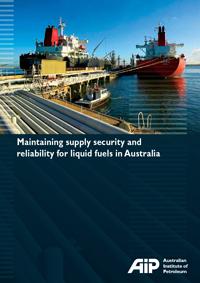
Date
Description
AIP has produced a new publication – Maintaining Supply Security and Reliability for Liquid Fuels in Australia – which provides a factual overview of the liquid fuels market and supply chain in Australia. It also details the key factors influencing the secure and reliable supply of liquid fuels to…Date
Description
There is an extensive range of Federal, State/Territory and Local government regulations and legislation applying to refineries and businesses operating in the downstream petroleum industry. Some of the key regulations are outlined below. Formal Price Monitoring On 17 December 2007, under…Date
Description
The NOSEC is a committee of the Ministerial Council on Energy (MCE) and provides the main executive channel through which Commonwealth and State Governments formulate their overall management response to a national liquid fuel emergency. The task of the NOSEC is to ensure that the Federal…Date
Description
AIP member companies provide very reliable supplies of fuel to the Australian market and: represent around 90% of primary fuel supply to the Australian market, have decades of operational experience in Australia and Asia delivering high quality fuel to customers, have major…Date
Description
Australia’s import, terminal and storage capacity for transport fuel has increased over time to meet growth in fuel demand There has been significant investment in new and expanded storage and terminal facilities over recent years to meet demand growth in key regional centres, as evidenced in…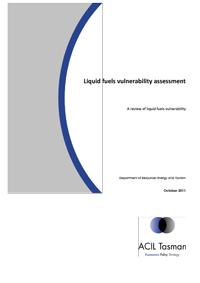 ,
, 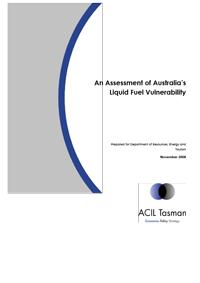
Date
Description
In 2009 and 2011, ACIL Tasman was engaged by the Federal Department of Resources, Energy and Tourism (DRET) to examine Australia's current level of liquid fuel vulnerability and significant trends which may affect this over the short, medium and longer term. The Liquid Fuel Vulnerability…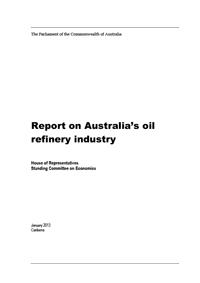
Date
Description
On 5 February 2013 the House of Representatives Standing Committee on Economics tabled its Report on 'Australia's Oil Refinery Industry', following the Committee's inquiry in 2012. The Inquiry was conducted in relation to claims and concerns being raised about the viability of Australia's oil…